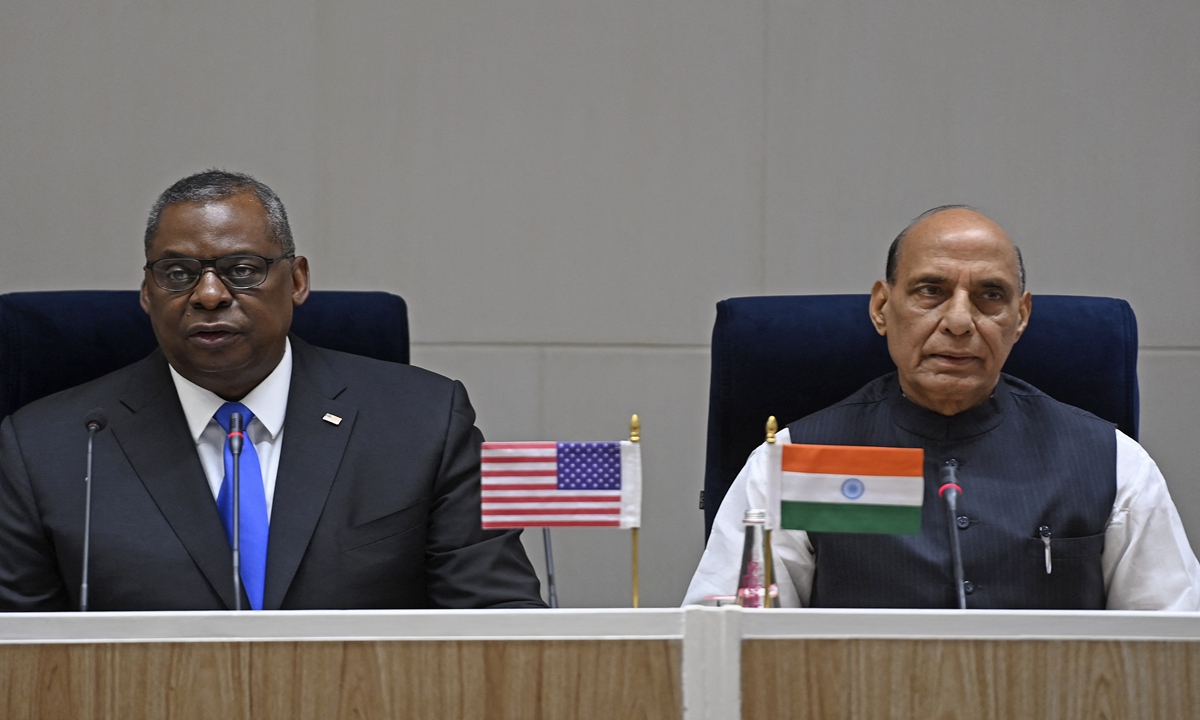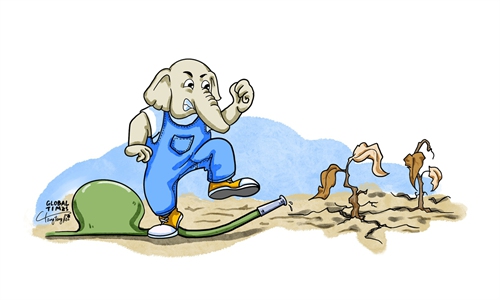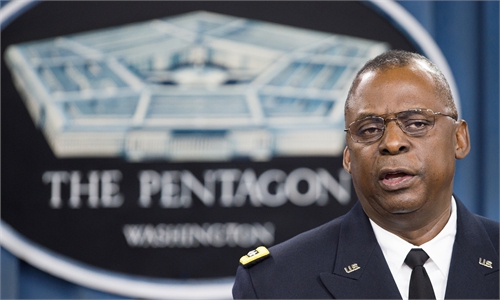
US Defense Secretary Lloyd Austin (left) and Indian Defense Minister Rajnath Singh address a joint media briefing held in New Delhi on Friday. Photo: AFP
US Secretary of Defense Lloyd Austin kicked off his three-day visit to India on Friday, just a week after the first summit of the Quad, an informal security grouping consisting of the US, Japan, Australia, and India. Austin is the first US official from the Joe Biden administration to visit India. Austin called the India-US relationship a "stronghold of free and open Indo-Pacific region." This displays the great importance the Biden administration has attached to India and its intent to reinforce bilateral ties with India.In contrast to the US-Japan joint press statement issued on March 16, the joint remarks between Austin and his Indian counterpart Rajnath Singh on Saturday did not mention China. Qian Feng, director of the research department at the National Strategy Institute at Tsinghua University, told the Global Times on Sunday that just as many major powers, India tries to avoid taking sides between China and the US, whose competition has been ramped up. New Delhi is to hold the BRICS summit this year, involving Brazil, Russia, India, China and South Africa, and it is also a member of the Shanghai Cooperation Organization, in which China is one of the founding members. In this context, India needs to keep its balance between China and the US.
Swaran Singh, a professor in international studies from the New Delhi-based Jawaharlal Nehru University, echoed this view. Singh said that as India prepares to host the next BRICS summit, it would be restrained and "carefully calibrate any statements so as not to further complicate India-China relations" in an article posted by the South China Morning Post on Friday.
Ahead of Austin's visit, some media outlets predicted Austin would fan the flames between China and India on issues such as territorial disputes and convince India to retain its hard-line stance on China.
Austin said on Saturday that the US does not think that "India and China were at war" in response to a question about the China-India border tensions in 2020, according to the Hindustan Times. Austin's narrative was based on fact - even though the border tensions between China and India were intense, they did not resort to war. But this rhetoric does not mean the US military will cease using China-India border issue as an excuse to play up "the security threat" posed to India by "China's aggressive expansion" in dealing with India, Qian said.
Washington and New Delhi are exploiting each other. India hopes to increase its bargaining chips to negotiate with China by virtue of the US' efforts to woo India to counter China. India also intends to boost its international status and global impact by strengthening its defense cooperation with the US. Meanwhile, Washington wants New Delhi to play a bigger role in its Indo-Pacific Strategy and in the Quad to contain China.
The US has been gradually promoting defense ties with India. The country is willing to lend a helping hand to assist India's attempts to check China. The two countries have expanded defense coordination directed at China.
However, Qian said that most US senior officials, including Austin, are fully aware that India is not a country that can be easily manipulated by the US. If Washington blindly pushes New Delhi to the frontline to confront Beijing and pile too much pressure on New Delhi, the result may backfire. If the US fans the flame of border tensions between China and India to intensify military conflicts, it will go against India's national interests and will eventually result in India's alienation from the US.


